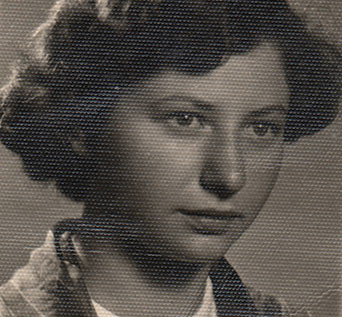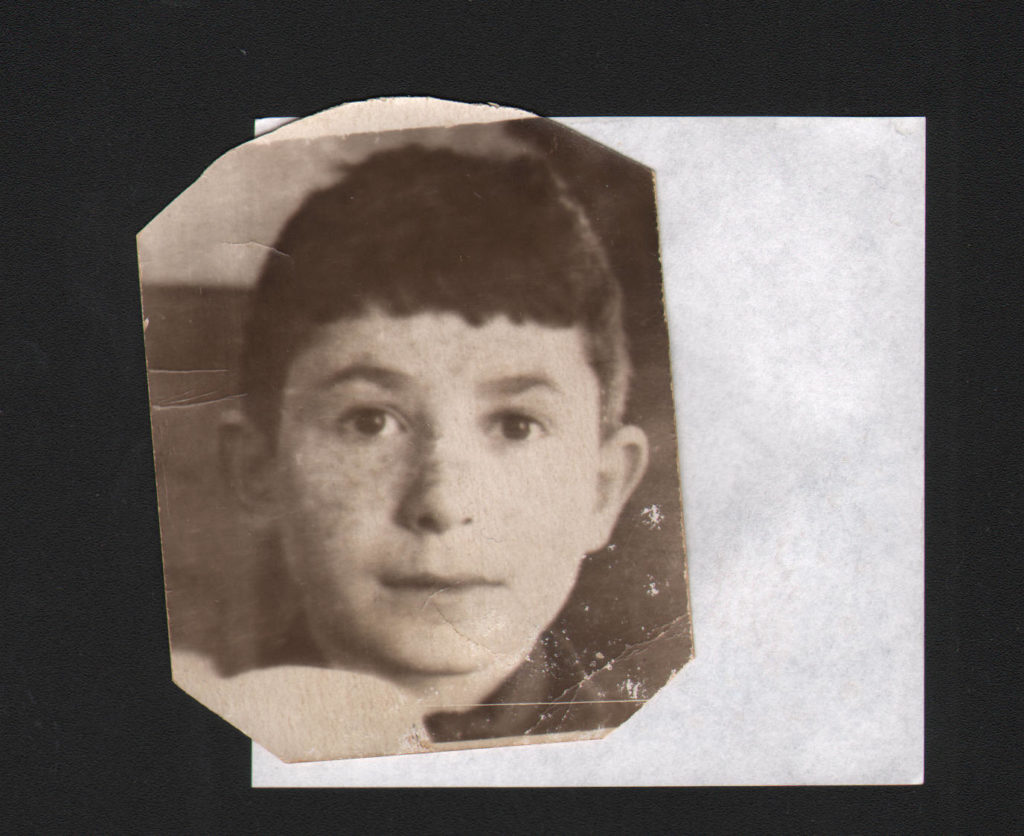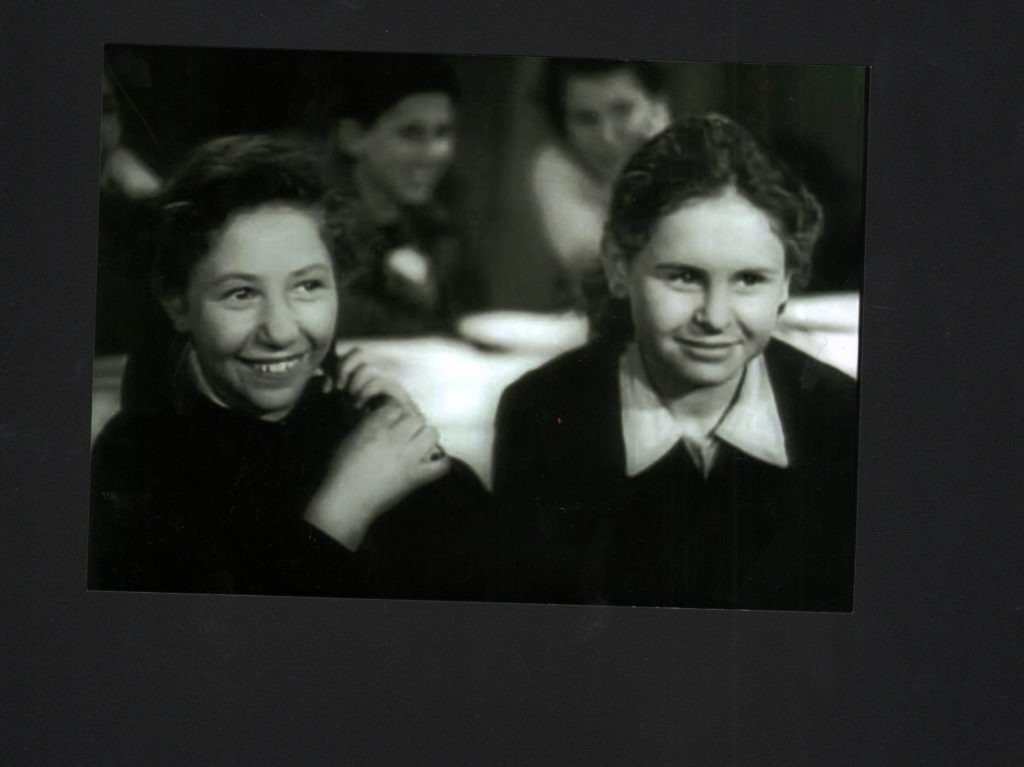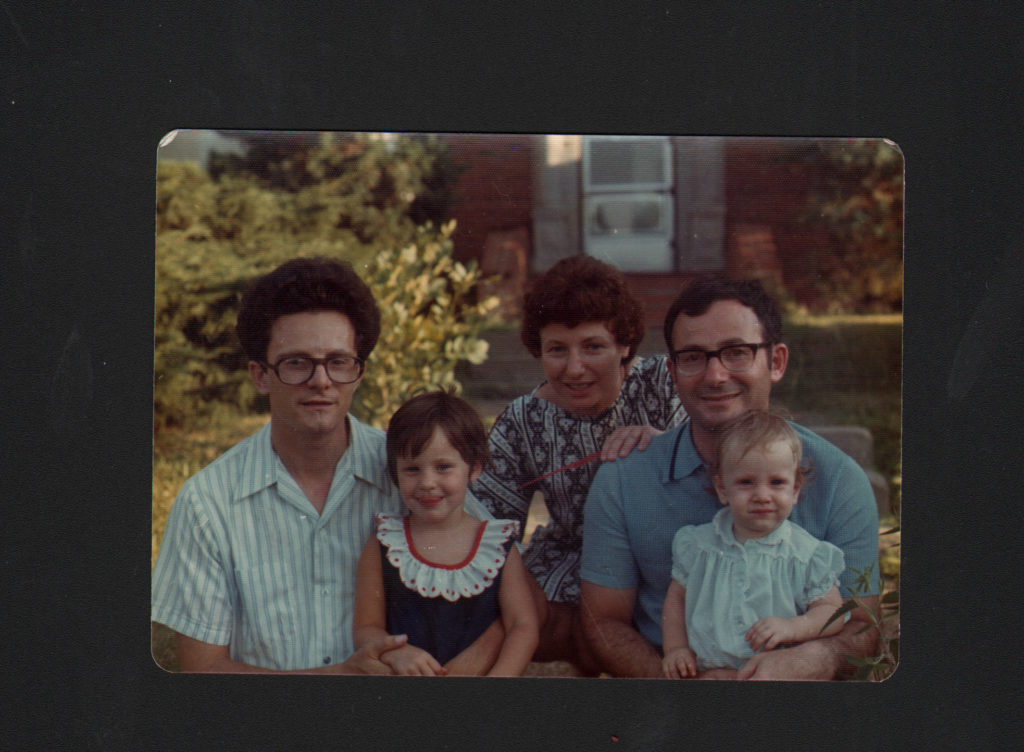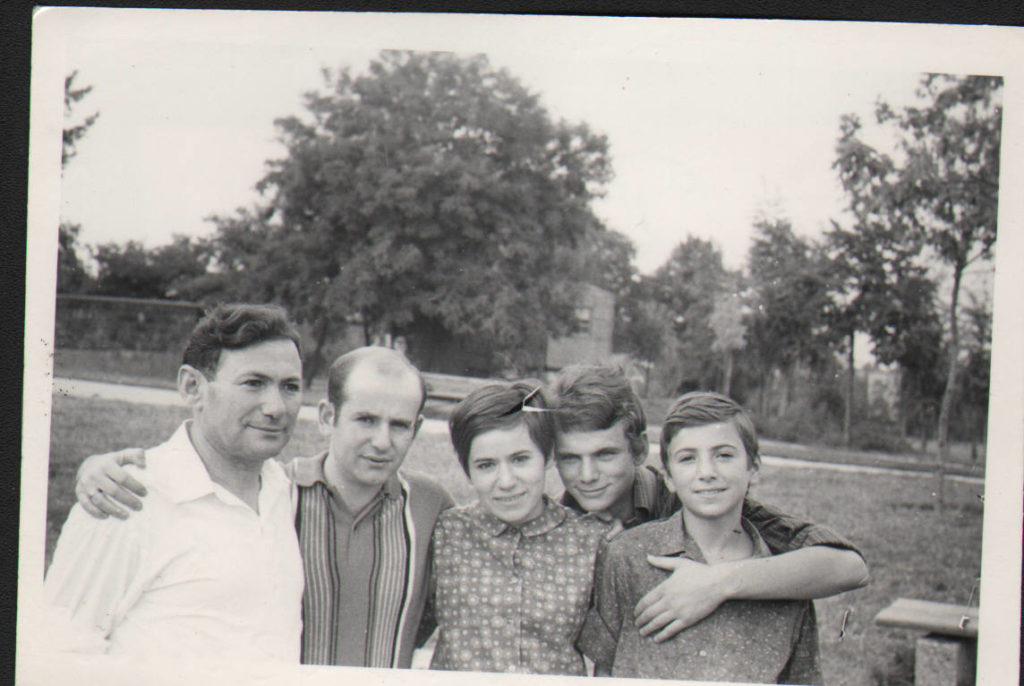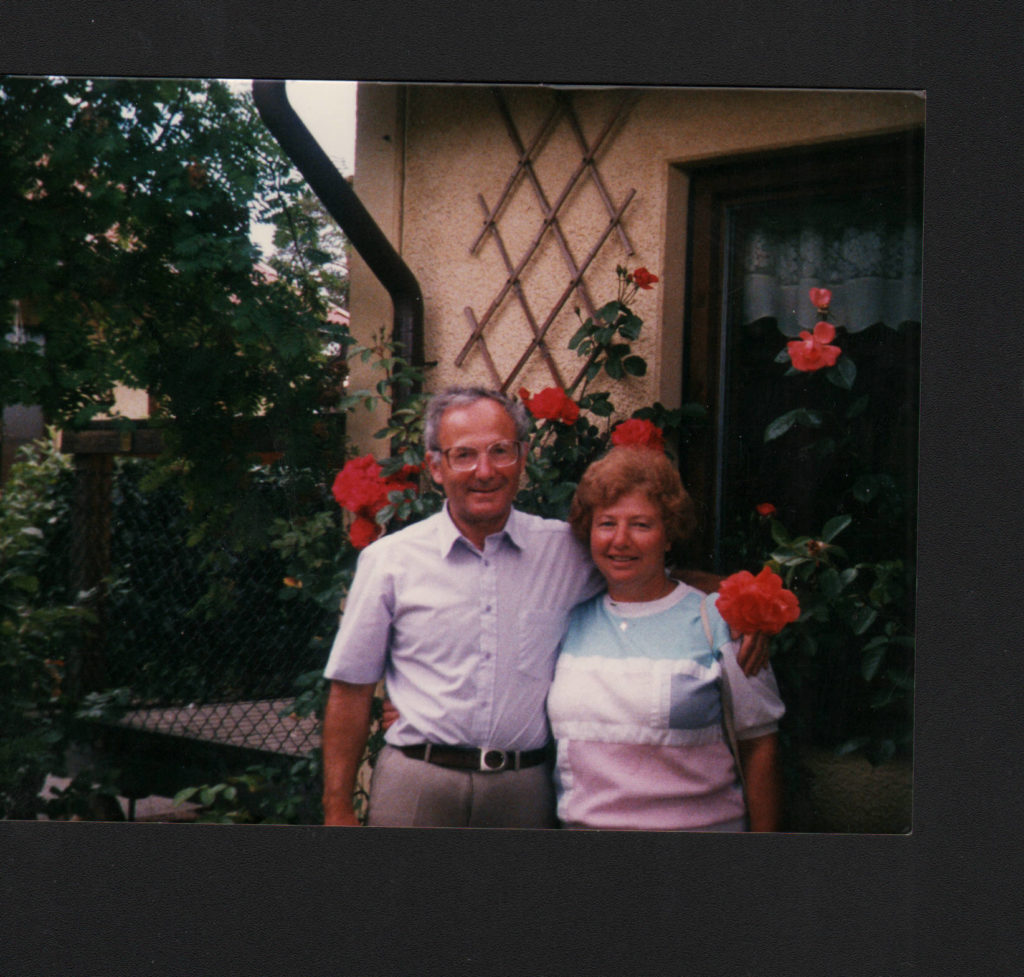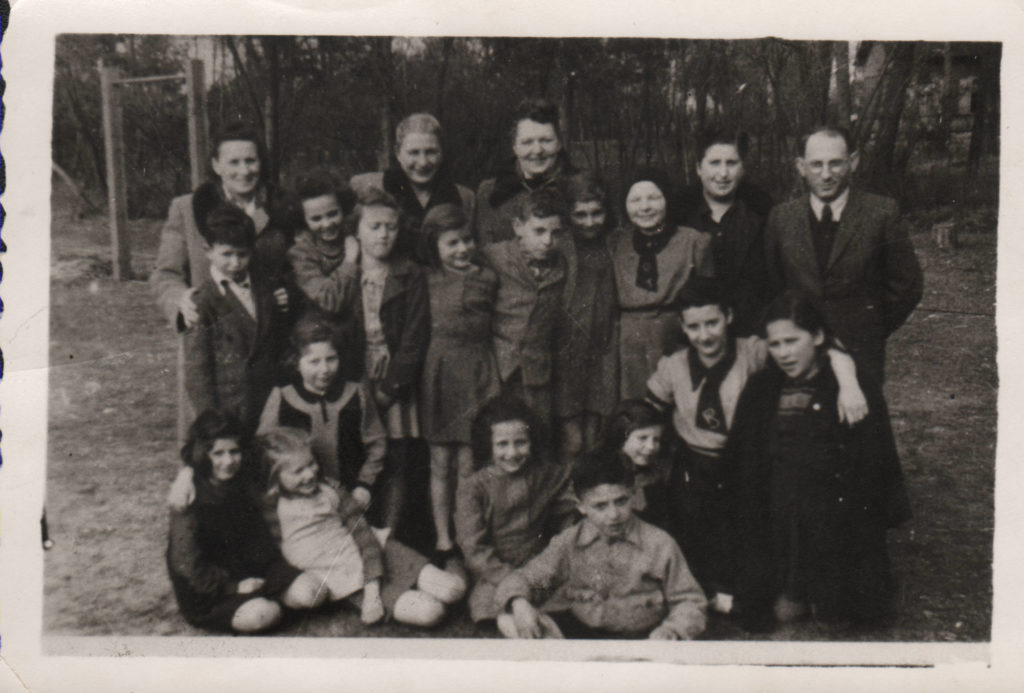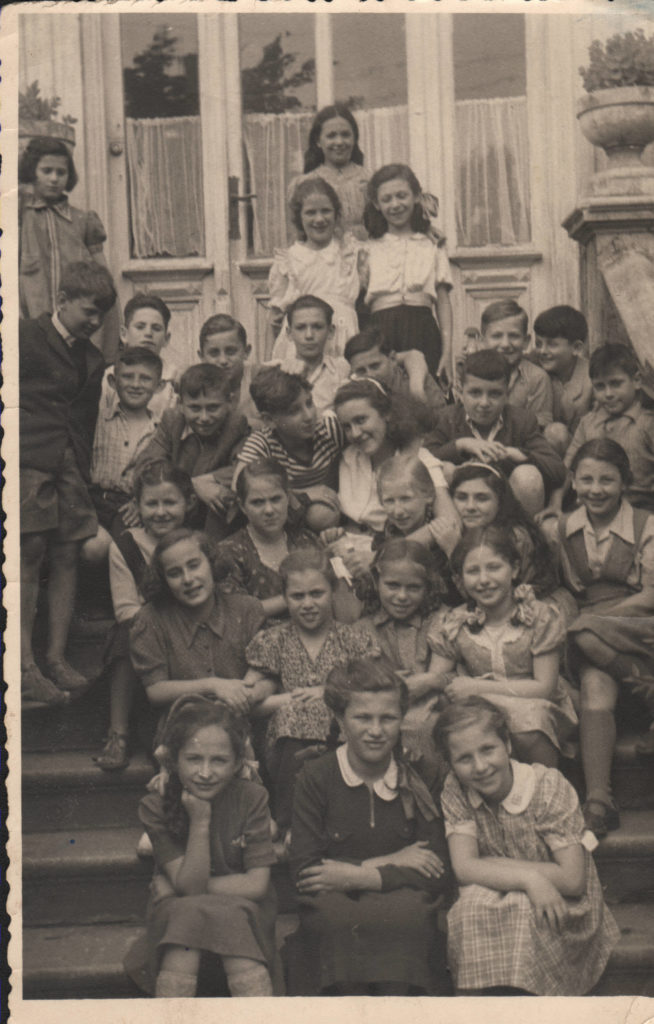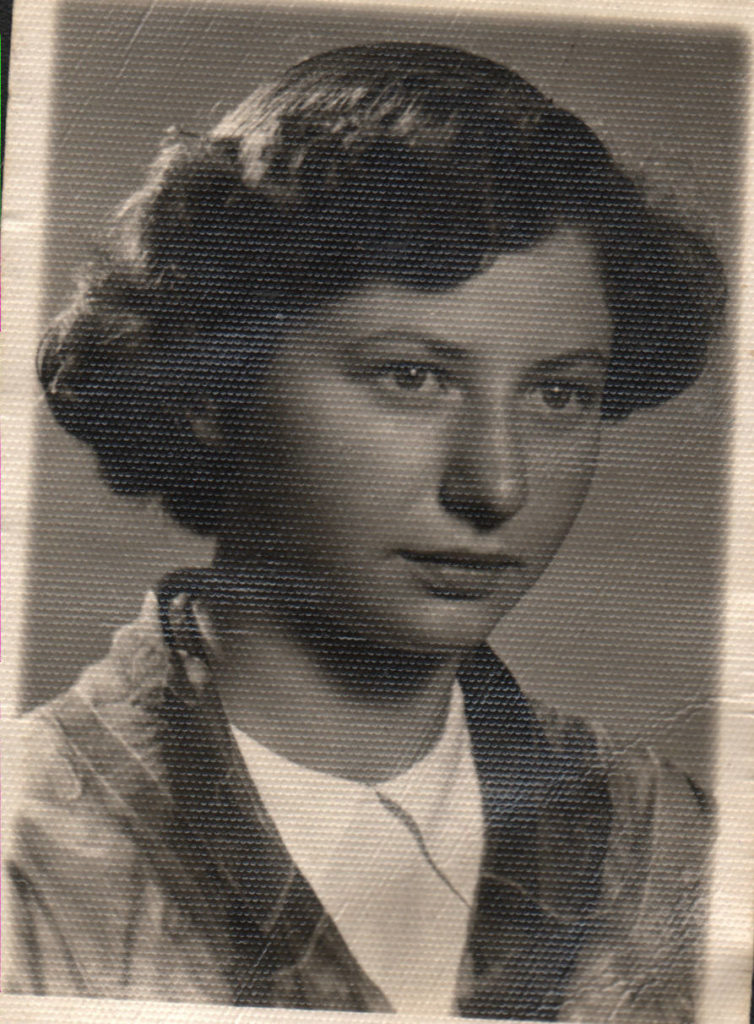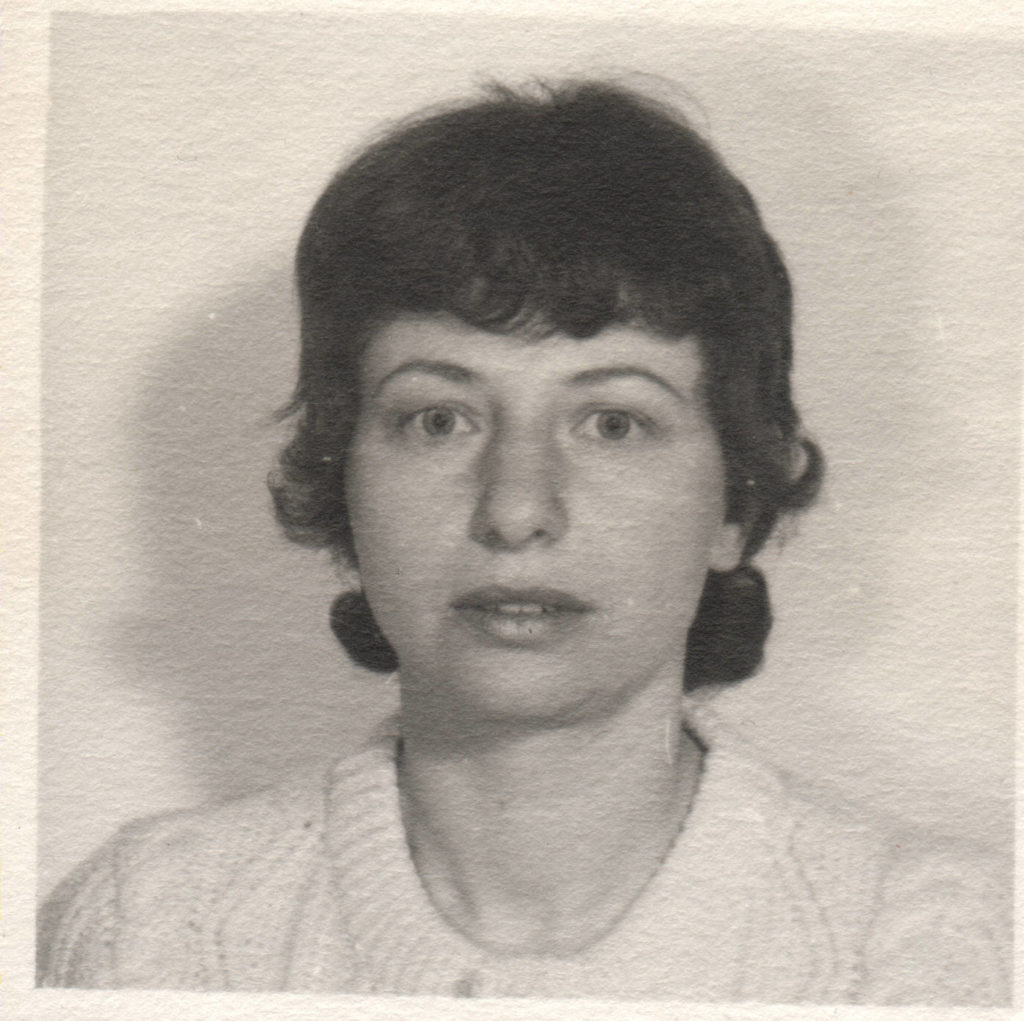(BACKGROUND CONVERSATION)
PRINCE: Well, and you were young.
WERTZ: You know, it was like a dream, everything. The city’s so beautiful, cold, terribly cold in winter, but beautiful in spring and June. They had these “White Nights,” so they say, you know, northern lights –
PRINCE: Is that all that’s in the nights?
WERTZ: No, that’s day all the time, that’s day, and you walk.
PRINCE: White Nights, right.
WERTZ: White Nights, and you walk all the time, and so it is beautiful when you come across this winter palace. It was a heritage museum and ______ and all this beautiful art. And the studies were much more difficult, so you studied history…
PRINCE: Could you excel there too?
WERTZ: Yeah, I could. So I started to learn English. (UNCLEAR)
PRINCE: So you knew Polish, you knew Russian –
WERTZ: Russian, and I also studied English, and oh, we made friendship with Americans. The first exchange between Russian and America when the fall started. And I met a handsome American man but he was married. We just were friends. And you know what happened?
PRINCE: What?
WERTZ: Americans were spied on. So they wouldn’t confront him, they confronted me that I shouldn’t go – not because the guy was married, but because he was an American. I should ignore him and I should…But we Polish students, we decided to – that we liked them, but we like Americans, charmed us when we looked in their direction. See, I lived in a huge six floor dorm. It was a floor of guys and a floor of girls. I mean, it was nice. (LAUGHTER)
PRINCE: You were ahead of us.
WERTZ: Well, simply the – well schools there were segregated, separate for girls and boys. (OVERTALK) But college, the dorm, well we were all adults.
PRINCE: But it took us a little later I think…
WERTZ: Are dorms co-educational now?
PRINCE: Yes, they are.
WERTZ: Well, I mean –
PRINCE: Some.
WERTZ: There was this kitchen; everybody cooked in it and it was always dirty. Everything was dirty. I mean everything was just from the Stalin age I guess – who cared. You didn’t have anything to eat so you get _______ going to the store and buy two pounds of potatoes, cook them, and salt, and eat them. Students, you know.
PRINCE: Yeah.
WERTZ: So, yeah, and you know what? I was introduced to – to Frank Sinatra and Ella Fitzgerald was there, and I knew all those songs.
PRINCE: You were?
WERTZ: Right, and that’s the way I learned English, was listening to records. I know “My Fair Lady” by heart, singing all the songs. Of course then the Britishers came, and some of my girlfriends married Britishers. And that was my first glimpse with America, through those foreign exchange students.
PRINCE: Did you ever think that you would – think of marrying an American and moving here?
WERTZ: Yes, as a matter of fact – do you know who wanted to date me? It was Undersecretary Hagerty; his son was in Leningrad and he invited me for Thanksgiving dinner. And I didn’t know what Thanksgiving was all about. And you know what happened? Here, they were accompanying us, two Americans and two Polish girls, and we were in a hotel restaurant because it was the only good restaurant there. And here I see a table with a Polish boy. I look up, and who do I see? Of course a Polish consul whom I knew because he was at the meeting with him before. And he tells me he wants to talk to me. So this American guy thinks he has to come up also. So he tells me in Polish that he doesn’t want me to see – to see me in this company. The American asked me, “What did he say?” I said, “Well, he asked me how I’m doing.” And you know that – that episode walked after me and made my life miserable later on. Because I came to Poland in 1960 and I didn’t tell you a whole new story – but maybe next time. And then the Red Cross told you, in the Jewish paper I found, that someone was looking for me. And I found this uncle. And uncle said, “Listen, you have a whole family in Israel.” And I got in touch with them in Israel, and they sent me a ticket to go to Israel to go and visit them. And I wasn’t given an exit visa.
PRINCE: Oh, bless you…
WERTZ: In 1962, ’63, I was trying so hard to visit Israel. If I visited then I would probably stay there and be in Israel right now. They didn’t –
PRINCE: This was because –
WERTZ: Because of that meeting with America and because they just – they thought I was…anyway.
PRINCE: This was from the Polish government.
WERTZ: Polish, yeah. So that’s – that’s…
PRINCE: That’s like being in Russia –
WERTZ: Then I felt –
PRINCE: Wasn’t it?
WERTZ: I felt – yeah. I felt ______. They treat me – oh, that was my shock. They treat me like their property. I write a very angry letter…to the higher ups.
PRINCE: And what did it get you?
WERTZ: It didn’t get me anything, but I express my feelings…
PRINCE: Did they answer?
WERTZ: No. I just really felt so bad after that. I couldn’t live in that country anymore.
PRINCE: How did you get out?
WERTZ: How? I married an American; a young handsome man came.
PRINCE: Oh, he was – he came to Poland.
WERTZ: Well, Wertz – Mr. Wertz was my second husband. I married Mr. Goldberg, was my first husband. He came to Poland as a babysitter of a famous professor and I lived in a house (SIGHS) which the professor visited. He visited this house because this lady, her brother in Ann Arbor, his colleague –
PRINCE: In Ann Arbor?
WERTZ: In Michigan.
PRINCE: Michigan.
WERTZ: So, uh, Carl was studying Russian, and I was studying English, so we helped each other. And then after four years he came and asked for my hand in marriage.
PRINCE: He was there four years?
WERTZ: He was there for one year.
PRINCE: And went back.
WERTZ: Went back, and we had been writing letters.
PRINCE: Oh.
WERTZ: And then he came in ’64, and then in ’65 we got married, and then I came here in ’66.
PRINCE: With him.
WERTZ: No, alone. He left.
PRINCE: He left.
WERTZ: He left because he had to finish school; he was a student in Ann Arbor.
PRINCE: Oh, and you came here to be with him.
WERTZ: Yeah.
PRINCE: Oh, okay. I thought you meant –
WERTZ: I came to be with him in Ann Arbor.
PRINCE: What was his first name?
WERTZ: Carl.
PRINCE: Carl. How long were you married?
WERTZ: A year – well, from ’65 to ’67, but one year we were not together. (TAPE STOPS)
PRINCE: All right, this is the third interview. Hi, my name is “Sister” Prince and I’m interviewing Felicia Wertz on July 15, 1986. Felicia, we’re talking about how you came to America.
WERTZ: Well, I got married in 1965 and then I – I couldn’t leave Poland right away with my husband because it takes time to get an exit visa, permanent exit visa. Besides, I wanted to bring my brother from Russia to Poland before I left for America. So I came to this country 20 years ago on May 22, 1966. (LAUGHTER) And I was married to Carl Goldberg, and we lived in Ann Arbor, Michigan and I worked there at the university in the Slavic department teaching Russian and Polish. (TAPE STOPS)
PRINCE: Felicia, before we go on, explain how you found your brother after being separated from him when you were so young.
WERTZ: For 22 years.
PRINCE: For 22 years.
WERTZ: Yeah. Uh, I remembered that I had a younger brother who cried constantly. And then I remembered that he was no more. But I remember that he was driven away on a children’s sledge in Russia.
PRINCE: Sled?
WERTZ: Sled – sled or sledge – what do little children have?
PRINCE: We call it a sled.
WERTZ: Oh a sled, you know.
PRINCE: Do you remember him crying when he went away?
WERTZ: Yeah, I remember – no, I don’t remember crying, but I remember how he looked and I have his picture as a young boy in my house. And when his daughter came recently she recognized right away, “It’s my papa,” (LAUGHTER) round-faced boy with freckles and dark eyes. Anyway I remember, as I told you, that my mother died previously. Do you remember that story?
PRINCE: Right, you were three.
WERTZ: After my mother died, we were orphans in care of 14 year old uncle. And that uncle took the two children, went to the nearest authorities and asked them what can he do about these two children?
PRINCE: I would like to ask a question now because this – you were in a labor camp with your mother when she died.
WERTZ: Right, right.
PRINCE: How could he get you out of the labor camp to take you to the authorities and take you to the orphanage?
WERTZ: Well, how could he…I think they needed people to work. My uncle couldn’t stay there any longer. War was going on and they needed every able body so probably they had to, to – needed people for the front, on the front lines, or backing up the military.
PRINCE: But they didn’t mind…?
WERTZ: I don’t think – they didn’t mind. Well, it happened; I don’t know how it happened.
PRINCE: Yeah, I just, I was – in listening, re-listening to the tape yesterday…
WERTZ: Yeah, yeah…So, they took us to the orphanage. And now, the story which I know now, it’s the story my brother told me after 22 years, what happened to him. Well, it was very cold there where we lived during the war in that orphanage, and I remember a year later a lady came and took us from there to central Russia. I remember that teachers would interview us of our going there because they would say that good things grow there on trees. They meant apples and pears and cherries, because the place we lived in was tundra; there was nothing. It was always cold and…it was just, I guess, a forsaken place; you couldn’t…See, I remember that we took a boat for several days on the river until we reached the railroad station. And then we were brought to Korsk (?), the city of Korsk, near – not the city of Korsk, sorry. __________ means the area of Korsk, and a little city, ________. That was my story, and then after the war with that orphanage I came to Poland.
In the meantime, my uncle, the 14 year old uncle, spent the war years in Russia. He worked in a ________, in a collective farm, and married a woman who was older than him, had children with her, and came back to Poland after the war. And he obviously was looking for both of us. He was – he put a search through the Red Cross. In 1960 I was sitting at my friend’s house, and I had a telephone call from a friend of mine who told me, “Do you know that Red Cross is looking for you and we have the information from the Jewish paper (which appears in Poland, _______)?” Well, and so she brought me the paper and there was the address of the person who was looking for me. And I took a train and went there, and that was the uncle, Itzchak.
PRINCE: What did you think? To think that somebody was looking for you –
WERTZ: Yeah, oh first it was a shock for me, but I’m not an orphan. I was so proud – to a certain point I was always proud that I had nobody. Nobody teased me about it because there were other people too, but the older I would get, I would think, “Well, why am I so alone?” Well, so he says, “I am Uncle Itzchak who took you to the orphanage. What happened to your brother?” I said, “He was adopted.” So I went to the Red Cross and put a search, continued searching. And after two years I got a letter from, from Red Cross that “the boy you’re looking for, Annoch (?) Smolarczyk, lives in _______. And he told us that his real name is Annoch Smolarczyk.” Well, now what happened – why did we find each other?
PRINCE: No, you said where he was living, but where is that?
WERTZ: This is in Russia, ________. __________ is a city where foreigners are not allowed during the war. That was the headquarters of the Soviet government because it was far away from the front line. It’s on the Volga River.
PRINCE: How did he happen to…I mean, what kind of family was he living with?
WERTZ: Okay. What happened, okay, a lady – he was living by himself at this point, unmarried, working in a t.v. station as a – not a camera…mechanic, as a technician, t.v. technician, and going to college, evening college. Okay, so, I called him and he came to the phone. You can call, even if a person doesn’t have a phone number, a telephone at home, you can call the post office, and then the person comes at the second hour.
PRINCE: Was your heart pounding?
WERTZ: Yes. And he said, “Well, I remember there was a little girl holding my hand.”
PRINCE: Ohhh…
WERTZ: And he says, “And your voice is very familiar.”
PRINCE: Ohhh…well, how did you say it to him?
WERTZ: In Russian.
PRINCE: No I mean – a sister –
WERTZ: Yes, in Russian, right way. We were speaking Russian.
PRINCE: No, no, I don’t mean what language. But I mean, what did you say to him?
WERTZ: That I’m his sister, and he says, “Yes, I remember there was a girl who hold my hand.” What happened to him was that he was adopted by that woman who had unhappy marriage and she couldn’t have children, so she thought a child would bring happiness to her marriage, but it didn’t. They divorced; they were both very poor. He was an alcoholic. And then she was left alone with this child, and she worked very hard and there was nothing to eat. And, uh, so he was in the orphanage. He went back to the orphanage –
PRINCE: Oh, he was –
WERTZ: She couldn’t support him, yeah. And so –
PRINCE: By that time you had left.
WERTZ: Yeah. We lost track of each other. Nobody knew – I didn’t know who took him, and where and how…when he was 14 and he had entered the eighth grade, he wanted to go to vocational school and he needed his birth certificate. So the principal of the orphanage showed him his file and said, “Listen, there is this strange document in your file which is foreign.” And at that point everybody was afraid of anything foreign. So he asked to look at it. It was an old battered document, probably birth certificate, Jewish – but in Polish language. And my brother studied German in school so he could figure out the letters. And he memorized the name, his first name, and the lady decided to be very nice. He said, “It’s foreign. It’s old. It’s not Russian.” “I’ll give you good Russian name. I would write on your passport that you are Russian, new birth certificate that you’re Russian. We will give you a new birth date. And we’ll write the fifth point in your Russian internal passport when you have written Jewish travel (?).” And he said, “I’ll write to ________ that you are Russian.” And she was nice – she destroyed that document, but he memorized the name. Then –
PRINCE: Excuse me. She was doing him a favor?
WERTZ: Yes, she was doing him a favor, right. So he’s now Sokolow too, which happens to be a very good Jewish name. It was a famous Zionist, Sokolow; everything in Israel was Sokolow. This 16 year old daughter of his told me that she felt so good. Everybody say, “You have a famous name.” (LAUGHTER)
PRINCE: Sakolov.
WERTZ: Sokolow – Sokolow, S O K O L O W, Sokolow. Anyway, now he was in orphanage, and he tells me the same story, how I hate – how he hated Sundays and holidays when everybody had those visitors and he had nobody, and where did I come from, do I have any relatives? He constantly was thinking; it was bothering him. Uh, and he saw the same movie I did. I didn’t know – it was Russian, pretty bad movie, but the subject matter was interesting, how two brothers find each other after the war after 20 years. He saw that movie and I saw that movie.
PRINCE: Oh my.
WERTZ: When he saw that movie he said, “Well, it’s impossible. I must have some family. I’m going to write to the Red Cross too.” So he wrote to the Red Cross, and in the meantime my letter was there too; it’s just coincidence, pure coincidence.
PRINCE: Is this the Polish Red Cross?
WERTZ: No, Soviet – Russian. They call it the Red Half Moon because they had Muslims. He wrote to them. What happened was, he didn’t answer fast to my letter, to my search, because it happened when he was in his 20s already – he’d lost contact with his adoptive mother. And when he wrote to the Red Cross for the first time, she found him, and he didn’t want to have anything to do with her for some reason. So, with the next time they called him from Red Cross he didn’t even answer because he thought that that was the same woman.
PRINCE: Same woman.
WERTZ: Finally they called him that “you are – you are searched abroad,” and that made an impression on him; how come abroad someone’s looking for me abroad? And then he answered. And then I got a letter.
PRINCE: Abroad meant Poland?
WERTZ: Poland, well Poland – he was in Russia. And this whole thing started; I was really elated and I write him letters. And the first, I remember it was March 31st, or April, 1964. I went to Russia with an excursion. That was just…
PRINCE: Can you just enlarge a little bit on the word elated? I mean…
WERTZ: Well, I was very happy that I have someone, and all my friends were so supportive. And we were thinking about bringing him to Poland, and we should be together, and…
PRINCE: It must have given you an entirely different feeling.
WERTZ: Yeah, absolutely different feeling that I’m not alone, that you know, that you know where you come from. Well, in the meantime, well I found this uncle, and my uncle told me, “You have a family in Israel.” And I start writing to that family in Israel, and they would send me oranges which was a great treat in Poland to get oranges, you know, like five, ten pounds of oranges. They come in cases. In Poland oranges are a luxury.
PRINCE: Just to have somebody thinking of you.
WERTZ: Yes. Well, it’s –
PRINCE: Pay attention to you.
WERTZ: Right. Now, which is connected back with the story you have there. And I – they send me the money to visit them in Israel and I wasn’t allowed to go. It was before I found my brother; that frustrated me very much. Anyway, my family is very orthodox –
PRINCE: Because of the visa?
WERTZ: Yeah. My family is very orthodox, in Israel, on my mother’s side. They live in Mea Sharim and B’nei B’rak. They are really very Hasidic Jewish people. And my uncle, my father’s brother, is a cantor. He is not that orthodox as…Anyway, so I went to Moscow and recognized my brother right away on this Russke railway station. I looked at him; he was just standing there. And I recognized him. He had a coat – I told his daughter – which was too long, and a hat which was too big, on him. Well, I didn’t say a word, and he told me, “Yes, this coat is too long because I don’t have a coat; it’s a coat of my best friend who said, ‘Listen, you’re going to meet this sister from Europe. You cannot look like a schlump. Take my coat. I know you don’t have a coat. And buy a hat.’” And the guy was six feet tall; my brother is short. So he bought him a hat.
PRINCE: Did you touch each other? Did you hug each other?
WERTZ: Yes, yes we hugged each other, and I remember what – he was so totally Russian. You know, Moscow is not a very sophisticated city. I remember we went to that hotel where I stayed and all this excursion, how I grew up. And he said, “Well, we have to celebrate,” and bought a bottle of cognac and four apples, which were the most expensive things in that store and that restaurant, you know. And pours it into a glass and says, “Drink,” you know, it’s a Russian way…He always talks about it. He says, “How could I must have looked to you?” I said, “No, you were my brother.” I knew Russian, so I wasn’t shocked, and we spent four days together in Moscow.
PRINCE: Did you have – was there always something to talk about?
WERTZ: Oh constantly. Well, since we spoke the same language, and he asked me about things and how’s it in Poland, and about family and everything. And then I said, “Well, you’ll come and visit us.” So –
PRINCE: “Us” being…
WERTZ: Me and my friends, because my friends became like a family. And I feel so guilty not writing to them – 82, 80 years old, women, and other friends my age which is – the strong friendships are typical of Poland and Russia; or maybe it’s a part of European culture.
PRINCE: More so than the United States?
WERTZ: I guess so. Probably you have family – you rely too on families. We came from – well, everybody was from Holocaust victims, so friends substituted for those big families. I can compare with the Russian people who came. They all live in families; I don’t know, somehow I’ve never seen big Jewish families (LAUGHTER) in Poland because you know, Poland suffered the most during the war, and people rely on their friends, which are like a family. So he came to Poland in 1965. And he – and then I can tell you – I talk for hours his shock, culture shock, he went through. (LAUGHTER) But…
PRINCE: What was it like for him?
WERTZ: For him? He – he had a culture shock like a Russian coming to America because Poland was so different from Russia. First is, he wanted to see a real capitalist because there is private property in Poland, little – (TAPE STOPS)
PRINCE: Say it again.
WERTZ: Little shop owners. So he, he say – he says, “I have never seen a capitalist.” And you know in Russia he’s so brainwashed that they are bad and ugly and fat, and – and capitalist; yes it’s bad, you know, because they live in worker’s party. So I said, “Well, let’s go and see the private shop owners in Warsaw.” I decided to buy him a tie, so we went into that little store and the salesman was – owner, same thing, was so polite, and nice, and gave him advice, ask him what kind of suit you want to wear with it. So he bought it and we came out and he said that he’s very disappointed. I said, “Why?” He said, “He’s not fat and doesn’t smoke a cigar.” And that was the caricature of a capitalist. (LAUGHTER) He had there –
PRINCE: Did he have any memories – I know he was younger – but did he have any memories of your mother?
WERTZ: I never talked to him about it; I don’t think so. I, I don’t think so. He remembers about…about the other, the adopted mother that he – that there were constantly neighbors who were constantly whispering that he’s a little Jew boy, little Jew boy. Well, he was circumcised, of course, and it bothered him constantly.
PRINCE: How did he – and so if – also your father…
WERTZ: He doesn’t remember that; he was younger. He’s a year younger than I am, year younger. I remember he was constantly crying for some reason.
PRINCE: Oh. (LAUGHTER)
WERTZ: And I couldn’t take it – when he was little.
PRINCE: Yeah.
WERTZ: That’s what I remember.
PRINCE: Did you tell him that?
WERTZ: No, no, for some reason – well, I haven’t seen him for eight years. Actually, it’s time to see him.
PRINCE: Tell me, he had the background of being called “little Jew boy,”
WERTZ: Yeah.
PRINCE: He then grew up in Russia, changed his religion –
WERTZ: He hasn’t changed – well, yeah –
PRINCE: Somebody changed it for him –
WERTZ: For him, simply –
PRINCE: As far as getting along…
WERTZ: See, it’s not religion, it’s nationality there because he doesn’t – the country’s not religious at all. But – well he felt he was Jewish because he doesn’t look Russian. He’s short, and has dark eyes and dark hair.
PRINCE: And so…what is he today and how does he feel about it?
WERTZ: He’s – well, he’s, he’s the father of three lovely daughters. He has a job with Erikson(?) Company, and he’s an electronics engineer in Sweden, has a Jewish – Polish-Jewish wife. I guess (LAUGHTER) my niece tells me that she wears the pants in the house, as she says. Well, I guess he would prefer to be an American, from what I know.
PRINCE: Yeah, but I mean as far as being Jewish…
WERTZ: Oh, he’s very comfortable with it because of Israel – he’s Jewish, no problem. Always he felt he is Jewish, close to Israel…
PRINCE: Because being Jewish wasn’t – when you were young, was not good…
WERTZ: No, it wasn’t good. (OVERTALK) Sure, it wasn’t for him either.
PRINCE: Wasn’t for him either.
WERTZ: Wasn’t for him either, but (OVERTALK) he’s, yeah –
PRINCE: It’s interesting that you two decided to be Jewish.
WERTZ: Oh yeah, well, you cannot hide it. I mean, you cannot, see, in America –
PRINCE: People do, though, Felicia.
WERTZ: In America, here. In Poland once you in – in any shape, form, or degree, relate to the Jewish people, you become Jewish. Here it is only religion. In Poland if you convert, they – they still will think that you are Jewish, and all that kind, that you’re a convert, and it sticks to you, like you’re still Jewish. Nobody – you’re born Jewish, and that’s it. It’s only in this country with tolerance and understanding, but – well, all religions are considered equal, but when Jewish is considered something bad, and you convert, you want to become better, so – to be accepted. Or otherwise, marrying a Polish blond, you know, and becoming sort of assimilated. But it doesn’t happen. People found out that it never works.
PRINCE: There.
WERTZ: There. Never, never. If you are Jewish, it’s being – it’s like, you know evil, (LAUGHTER) being Jewish.
PRINCE: But he doesn’t feel…
WERTZ: Oh no. He doesn’t. He’s proud of it, and Sweden is a very accommodating country. I don’t think he’s very happy there, but his wife is happy there. He visited me here –


